Who needs shredding? Everyone!
Individual residents, companies, organizations of all kinds, healthcare providers, professionals. Every person and every business.
Who needs shredding in Boston? Every person & every business.
Individual residents, companies, organizations of all kinds, healthcare providers, professionals who have personal documents, business files and medical records that must be disposed of in a secure way. They include financial records, customer lists, patient files, credit card receipts, price lists, sales statistics, drafts of proposals and letters, and even hand written memos or messages contain information about you, your business and your activities which would be of interest to many unscrupulous individuals.
You need to protect your private information and the information you are entrusted with and the best way to do that is shred the documents when it is time to dispose of them.
Without the proper procedures in place, your information or that of your customers and patients could end up in the regular trash where anybody could have legal access to them. Your garbage is the single most readily available source of information by identity thieves and business espionage spies. Any individual or organization that throws away private and proprietary information without shredding them first exposes themselves, their clients and their employees to the danger of an information breach and possible fines and penalties for violations with privacy laws.
Privacy Laws.
The Federal government and every state have privacy laws that apply to individuals, businesses and organizations of all kinds with provision in them that require that any document that contains private or personal information must be destroyed in a way that make the information unrecoverable before they are discarded, that means document shredding. Not complying with these laws can result in penalties and fines.
Discover how simple and secure the shredding process is with A1 DATASHRED.
What documents should you shred?
Have a “Shred All Policy”. Half of every document has information on them that privacy laws require shredding. The effort to review each document to determine if they should be destroyed would be difficult to estimate but we can guarantee it would be a burden. Make it simple and play it safe and shred every document when it is time to throw them away.

Moving is a great time to shred!
Before you move your residence or office you will decide what you need to move or be disposed of that includes files and documents. When it comes to personal and business records it’s a good time to purge those papers that are no longer needed. But you should not just discard any old or unwanted files. They need to be shredded not to mention why pay for things to be moved that you don’t need anymore.
Stored records need to be destroyed when the have exceeded the retention period.
All paper records have a life cycle that is affected by legal requirements and business retention policies that takes into consideration the value of the documents to the business or a person and the government requirements for possible audit or review. No document should be kept longer than necessary and should be shredded when it is being disposed. It will also help you reduce your storage cost.

Protect against discovery costs.
Litigation can be expensive and one of the biggest expenses of any litigation is responding to discovery requirements. Discovery is simply providing documents related to the legal matter which could be time consuming and very expensive. By shredding documents when they have reach their retention requirements you are reducing your exposure to the costs of discovery.
Our Services
We are happy to offer a variety of services to individual residents and businesses in Greater Boston and the surrounding communities.
One Time Shredding
Shredding only when you call for it in Boston and throughout Massachusetts!
Scheduled Shredding
Flexible and consistent shredding schedule to fit your needs.
Off-Site Shredding
Have your documents shredded off-site at our secure location.
Drop-Off Shredding
Bring your documents to be shredded at our secure location.
Hard Drive Destruction
Have your hard drives securely destroyed at your location.
Media Destruction
Complete destruction of tapes and electronic media.
Secure Containers
Store your documents in secure and locked containers.
Electronic Waste Recycling
Environmentally responsible e-waste recycling solutions.

A proud recipient of the AAA Certification from The National Association for Information Destruction (NAID).
The NAID Certification Program establishes the highest standards for a secure destruction process including such areas as operational security, employee hiring and screening, the destruction process and responsible disposal of the shredded paper.


